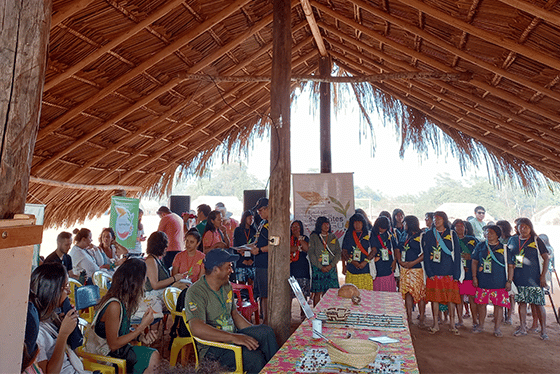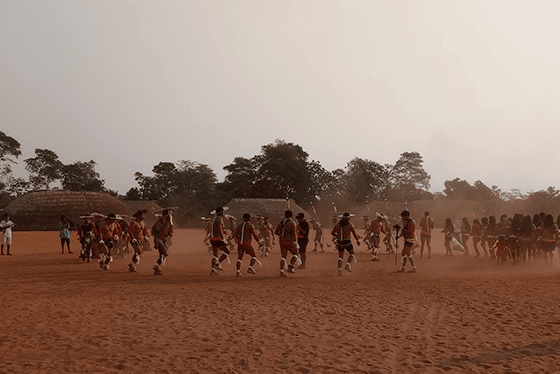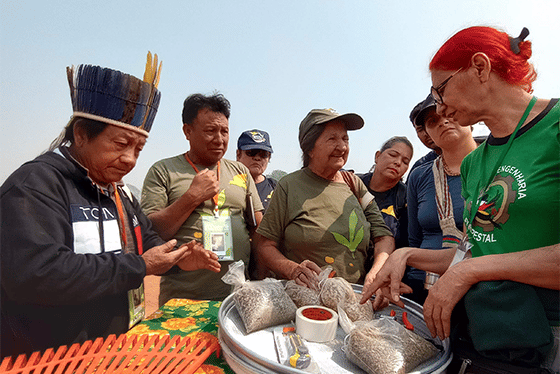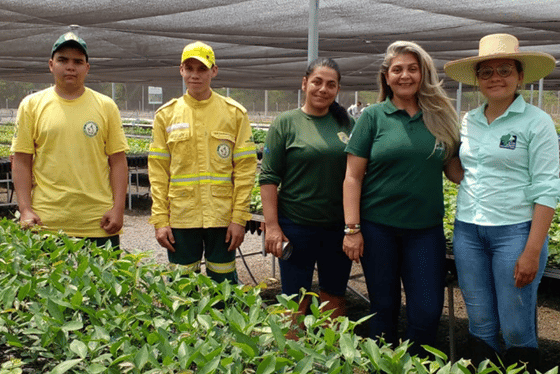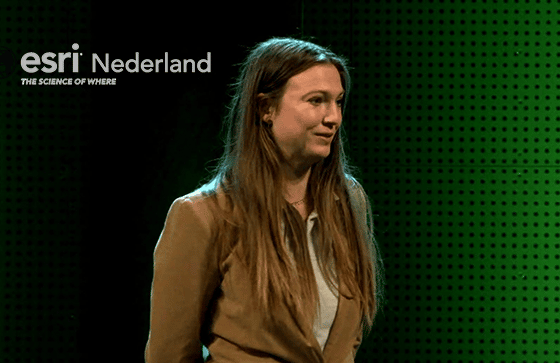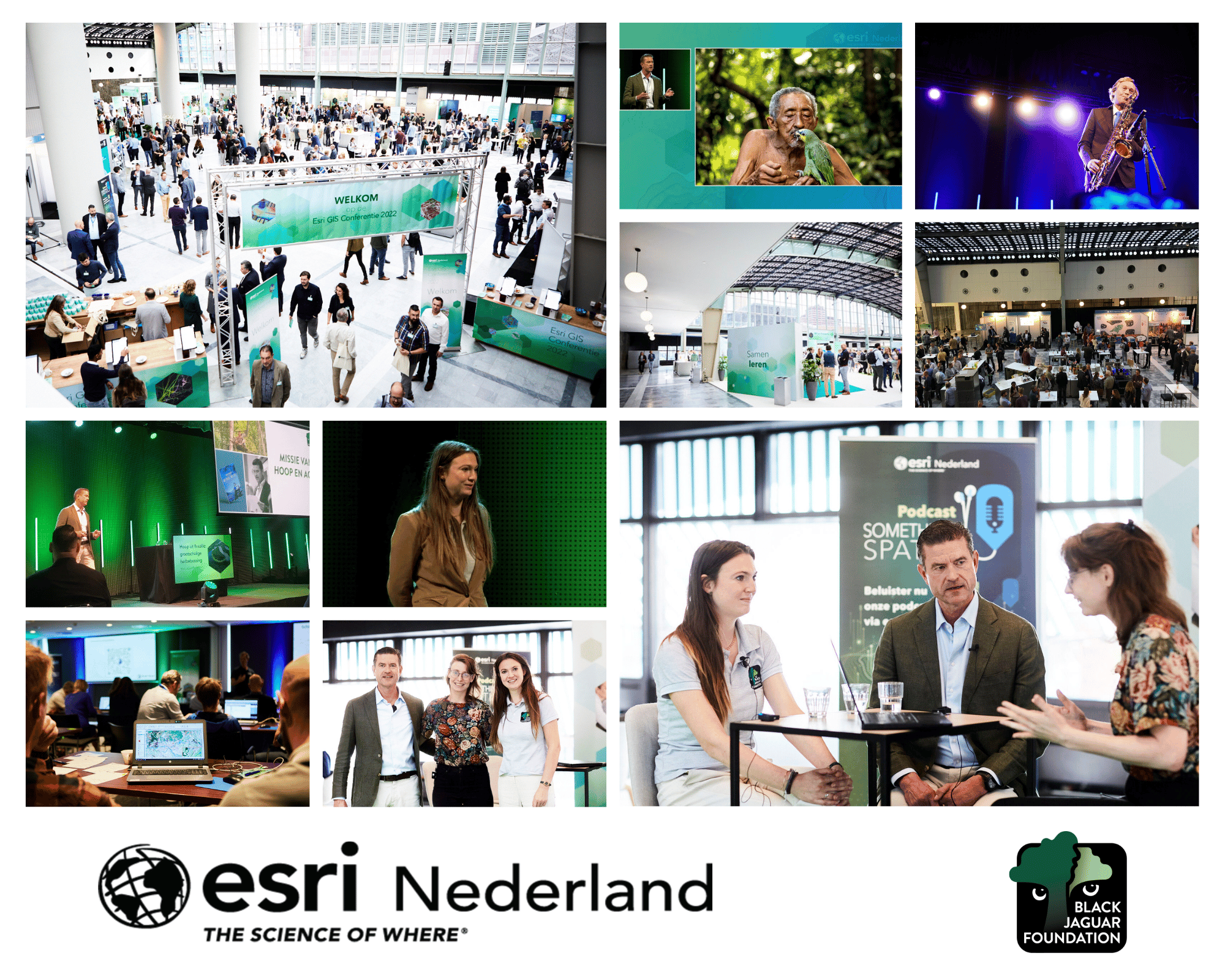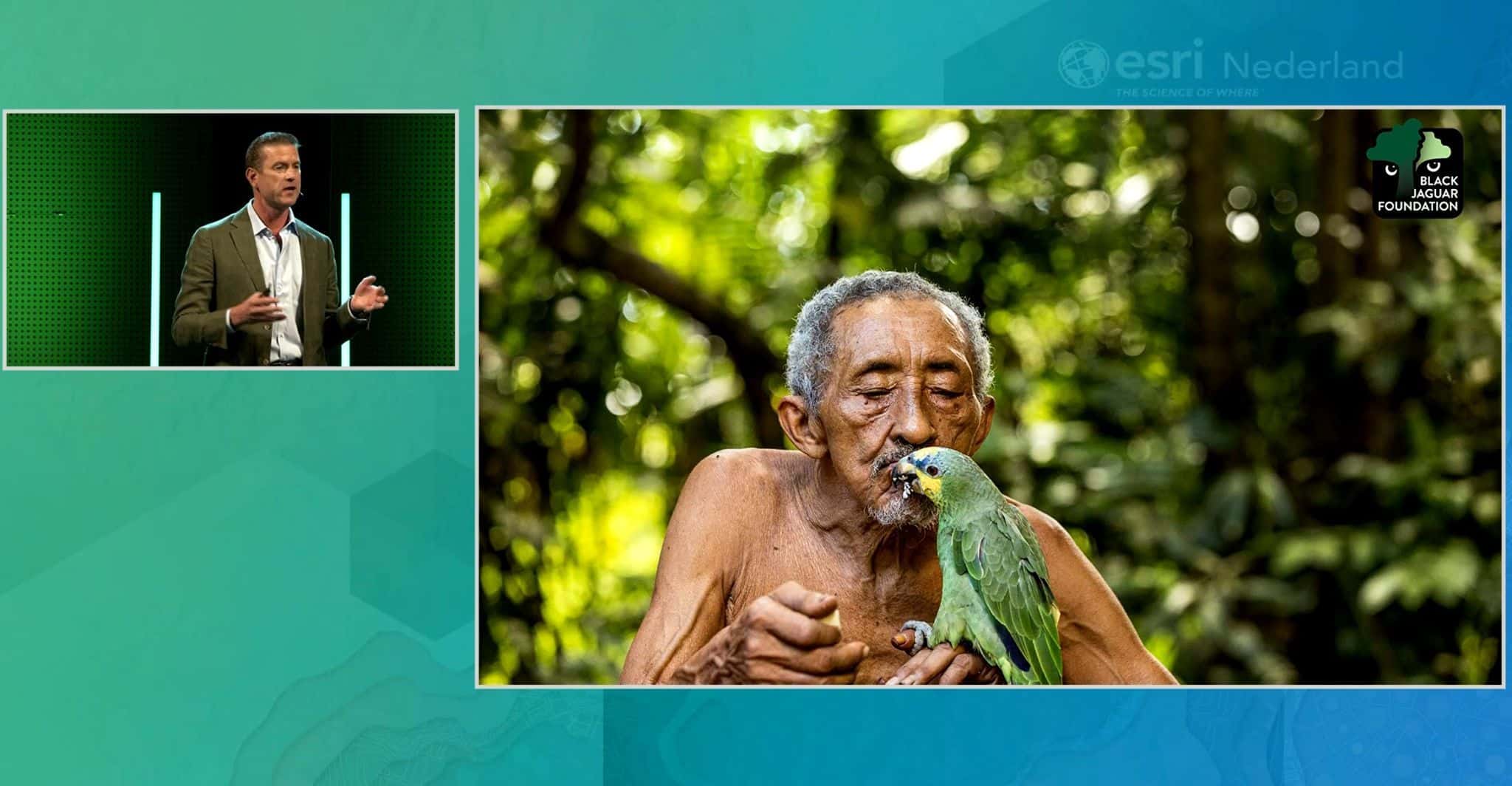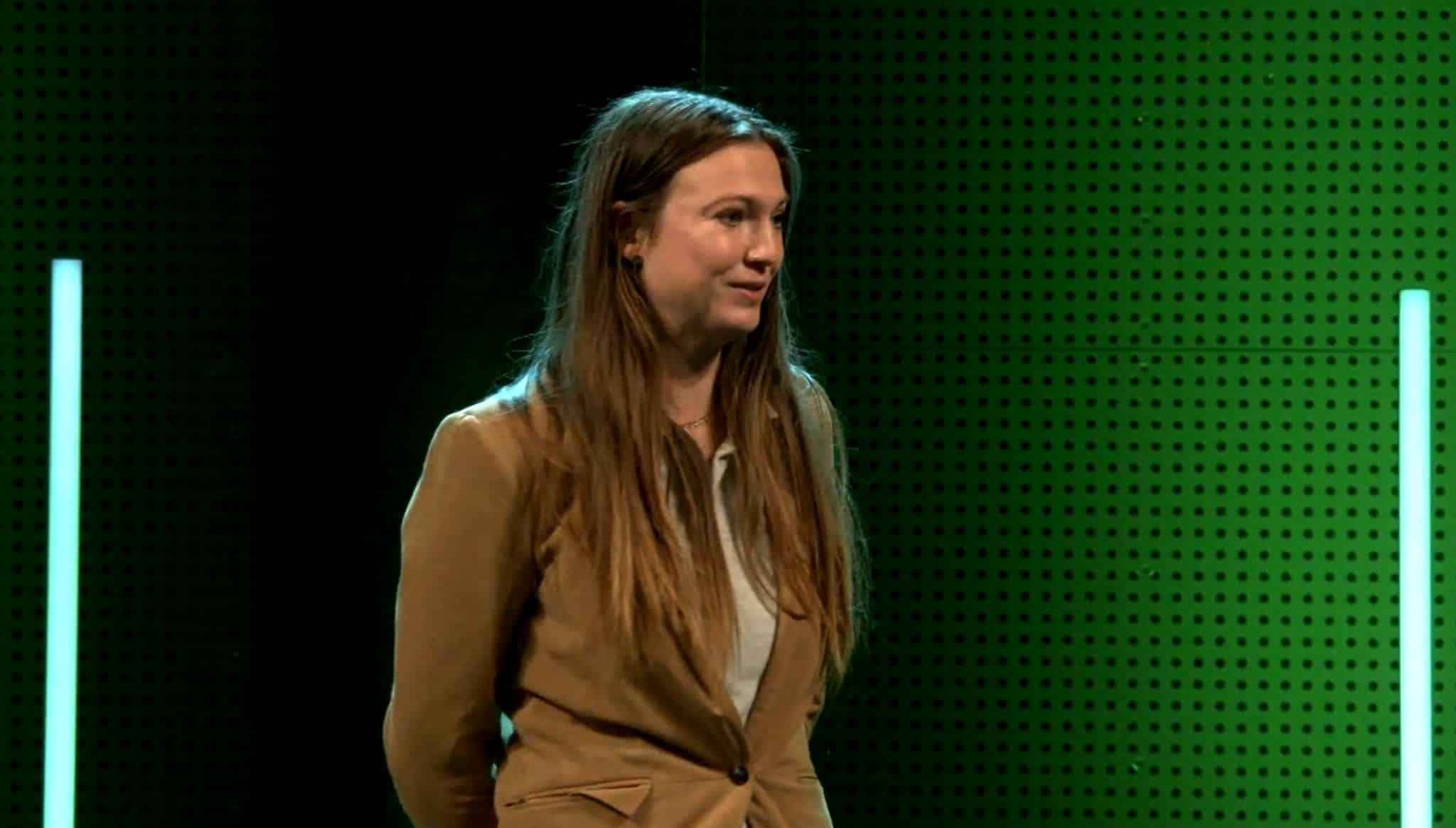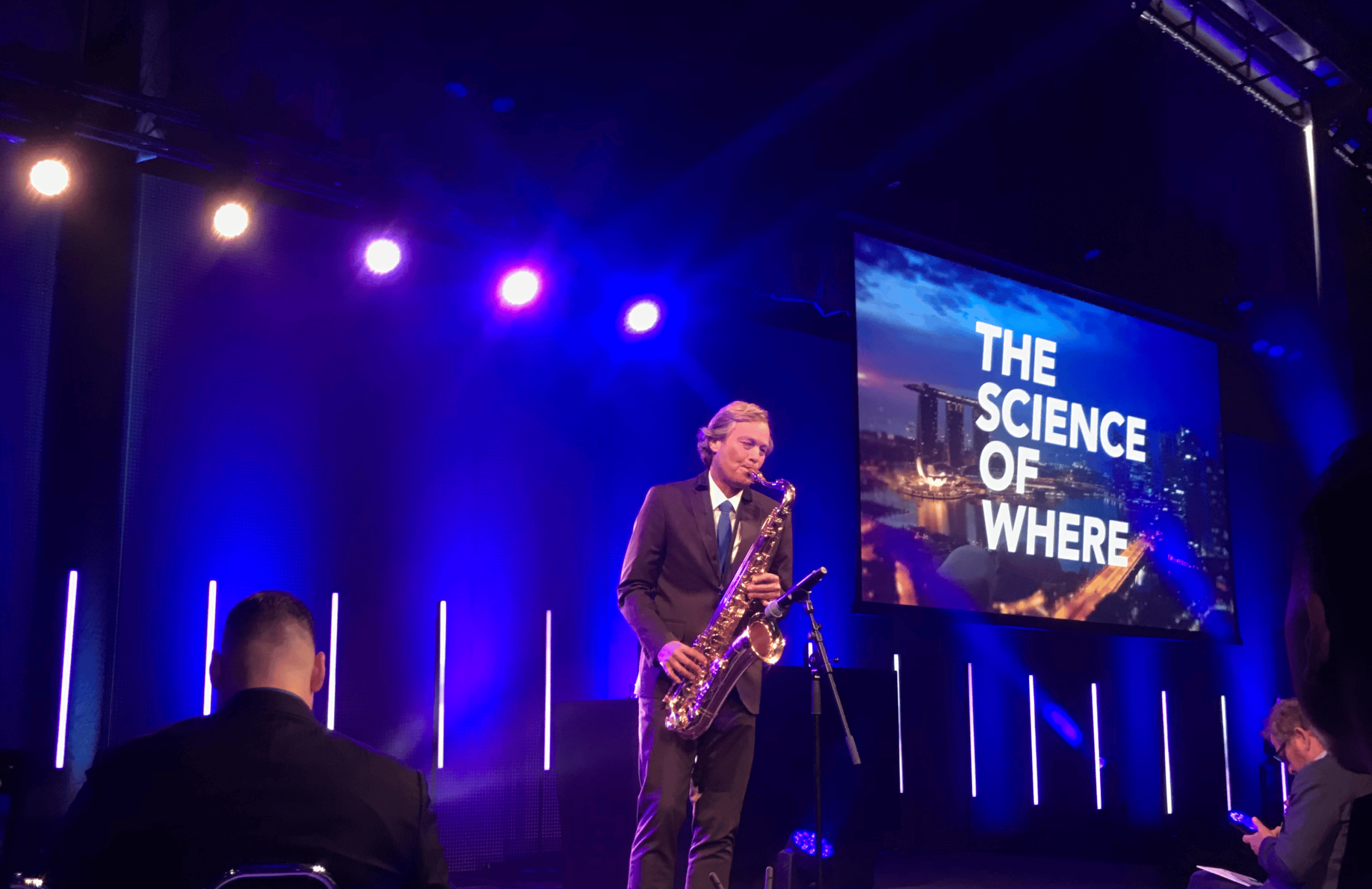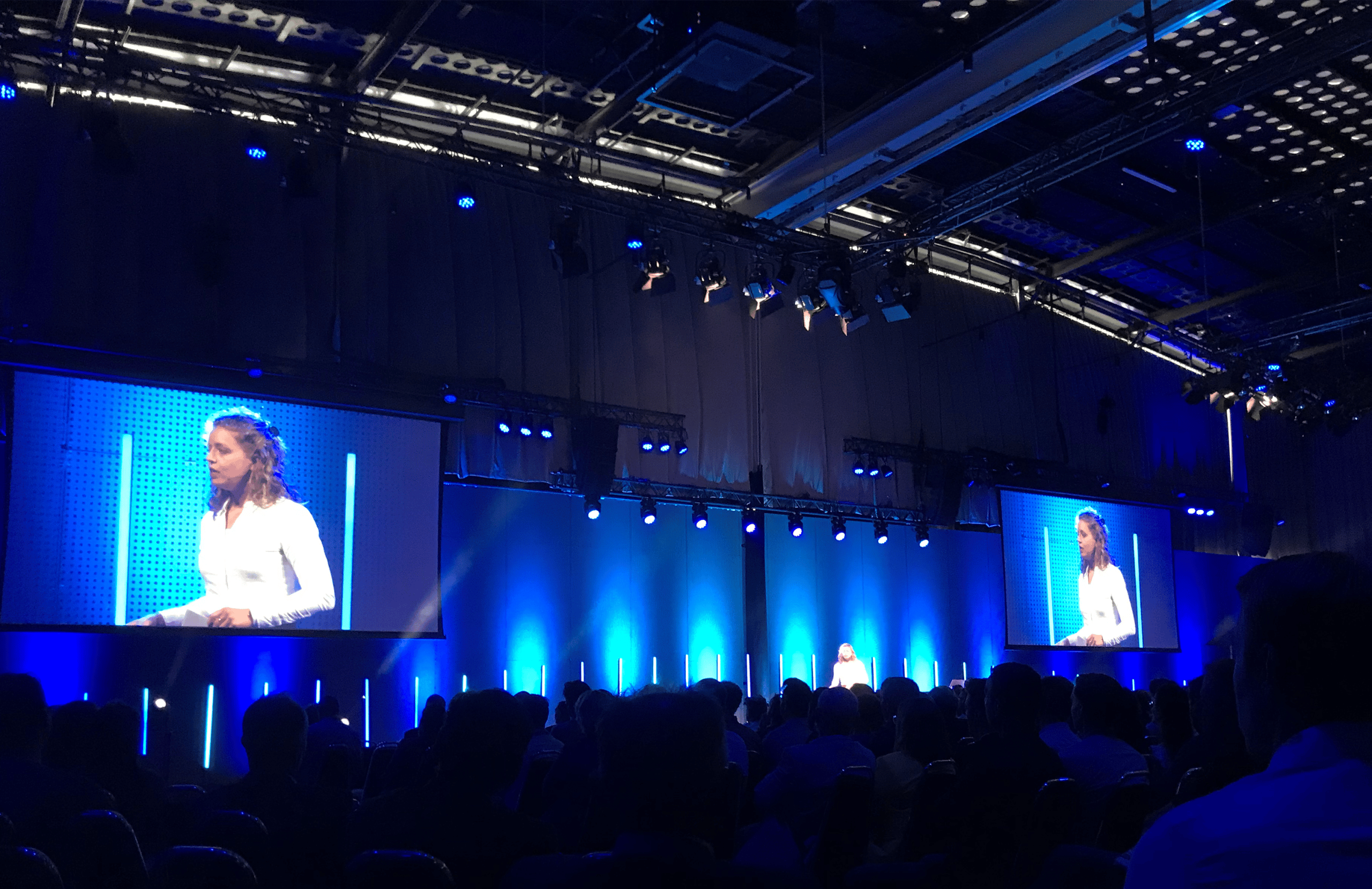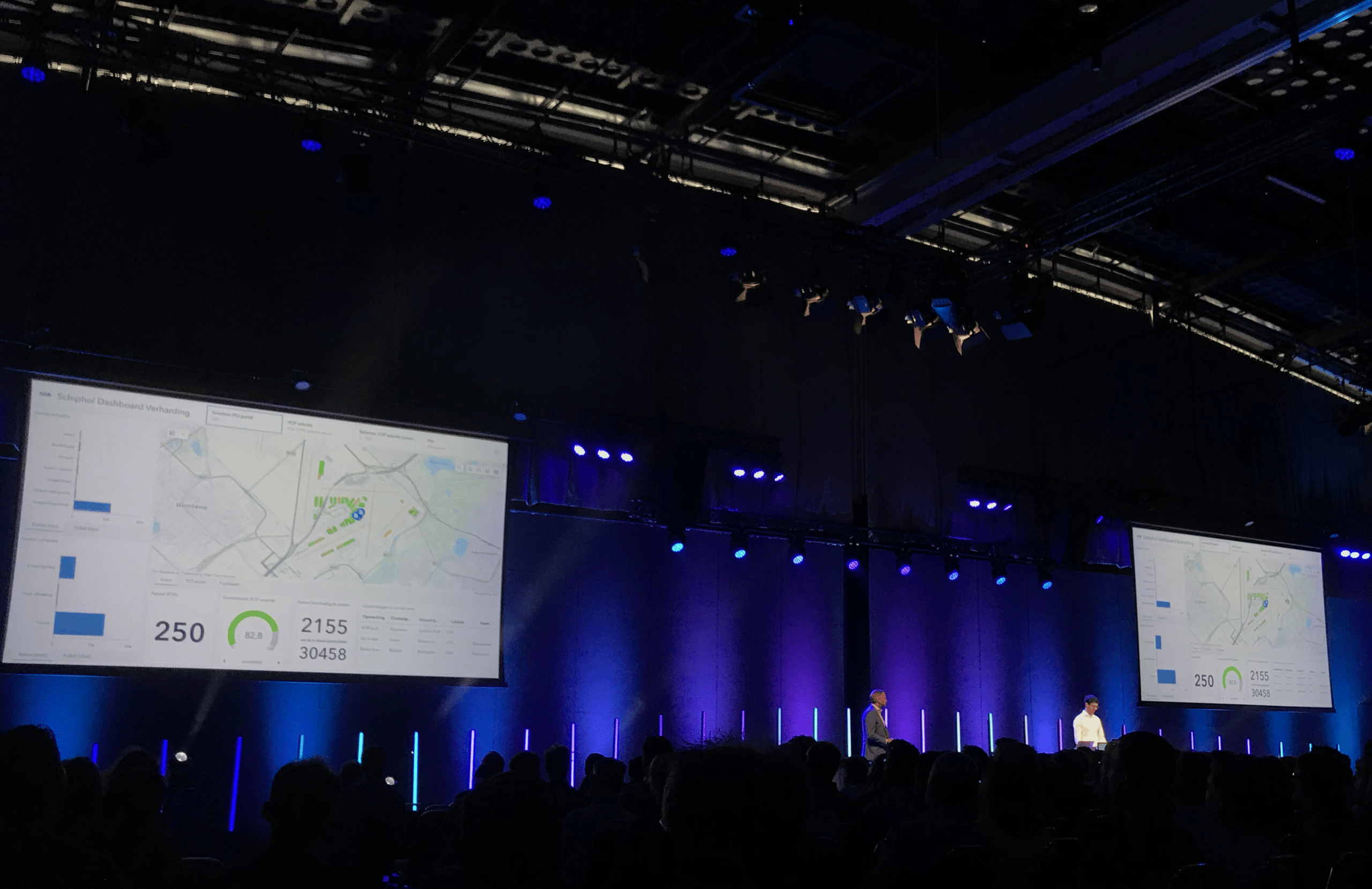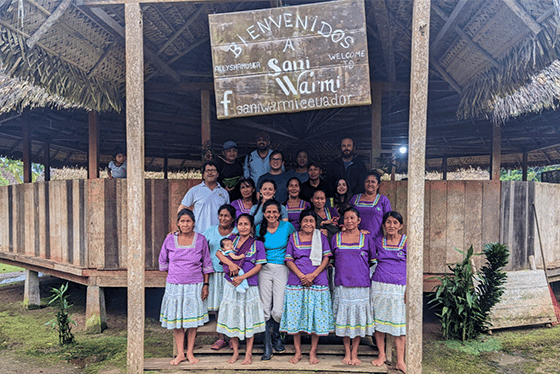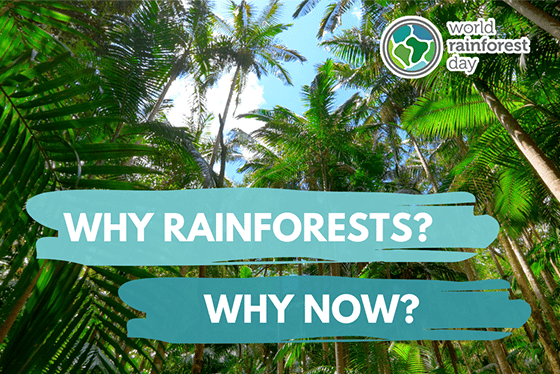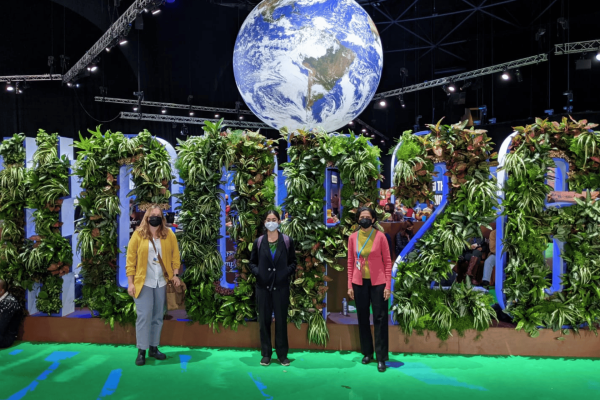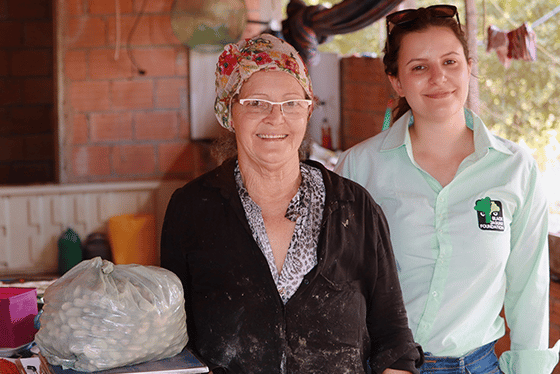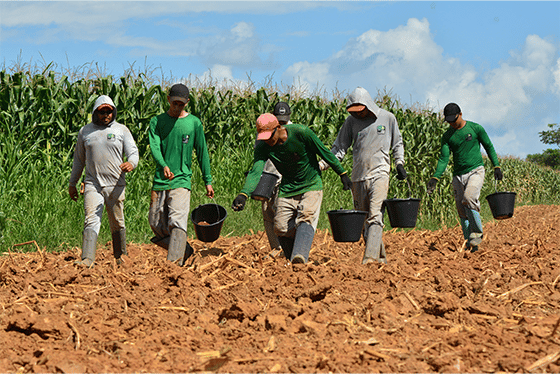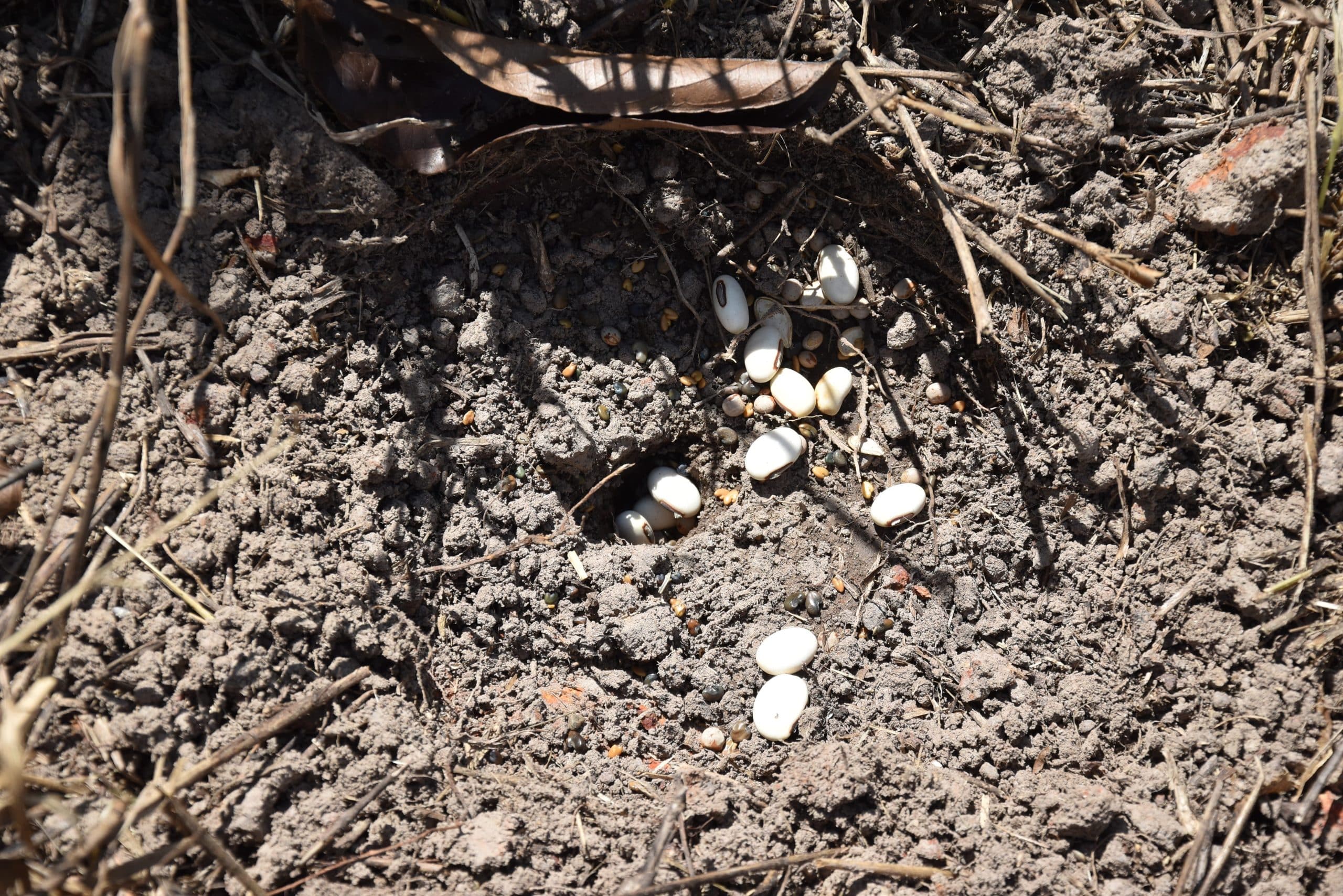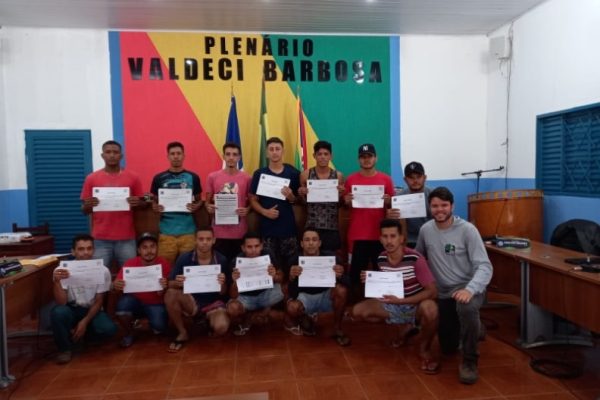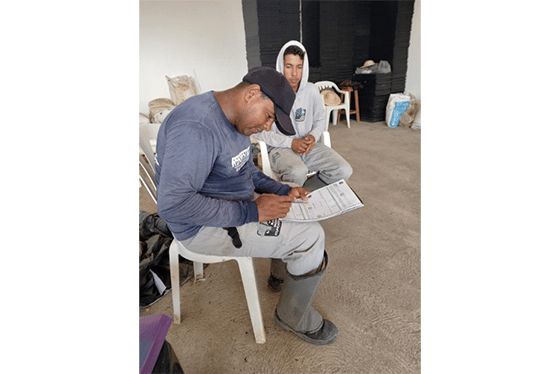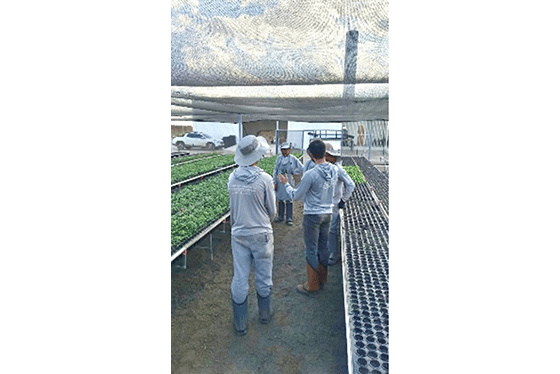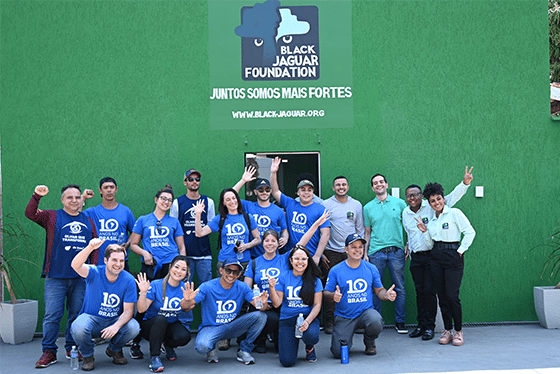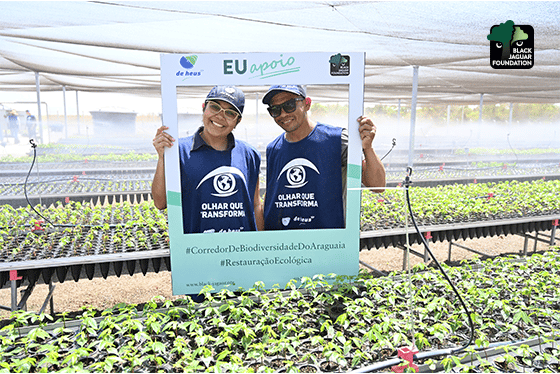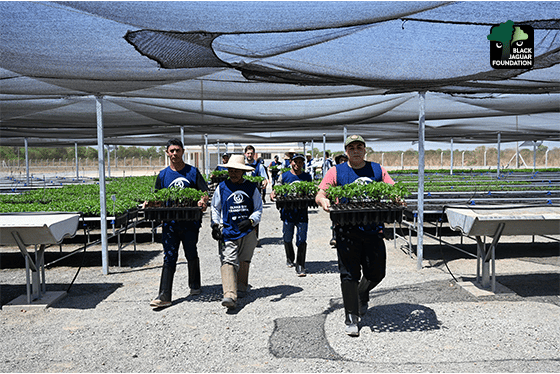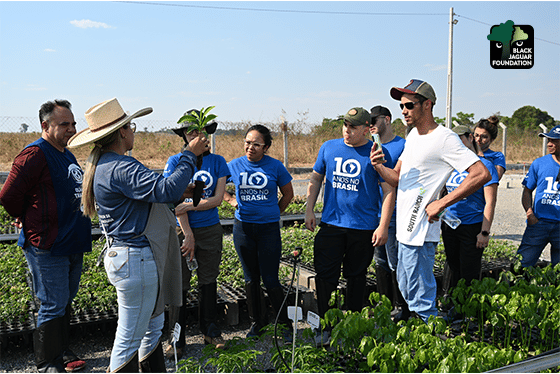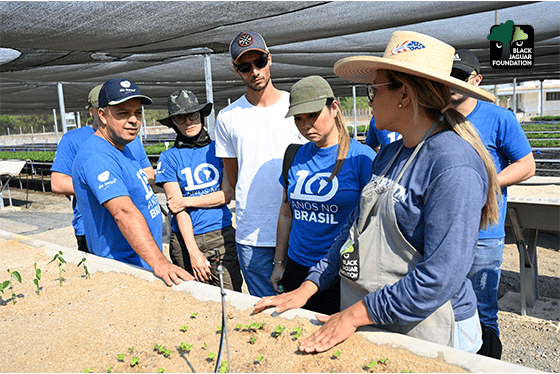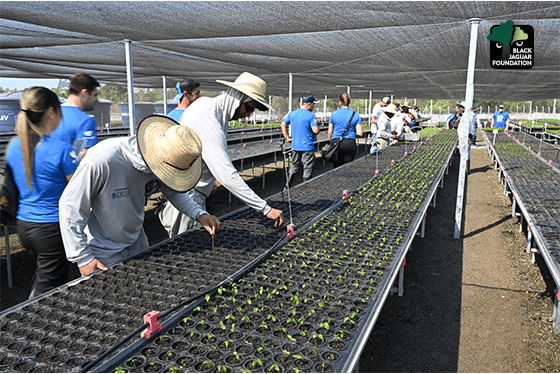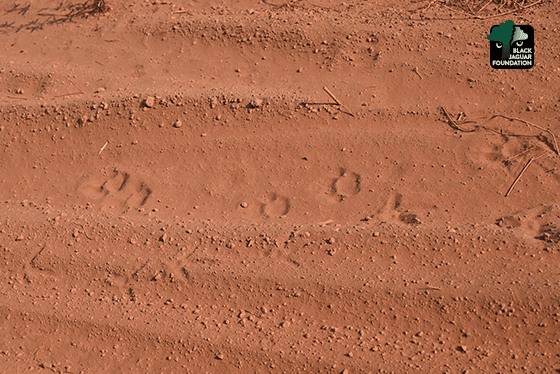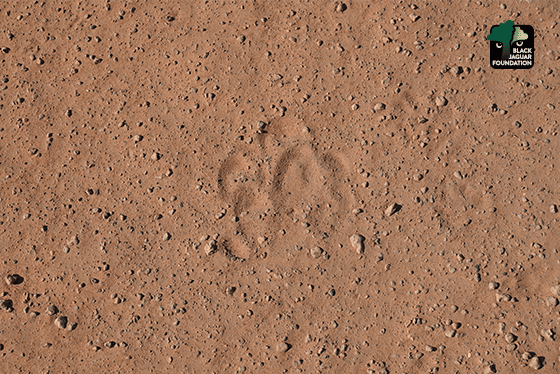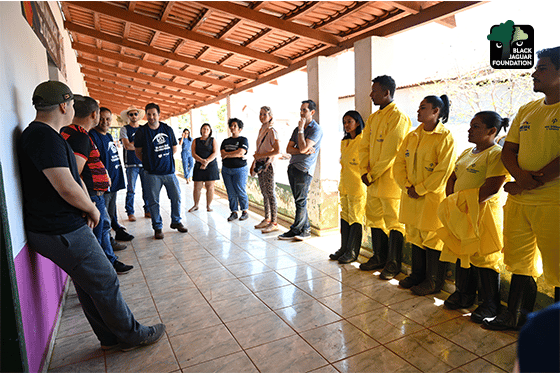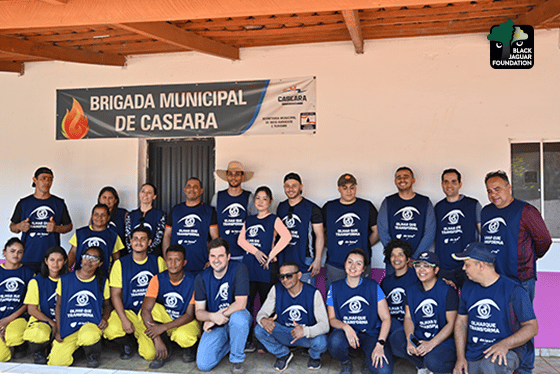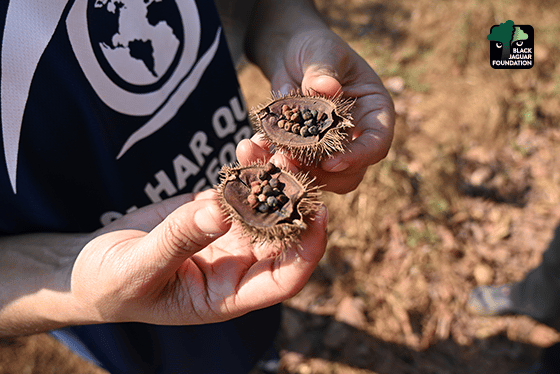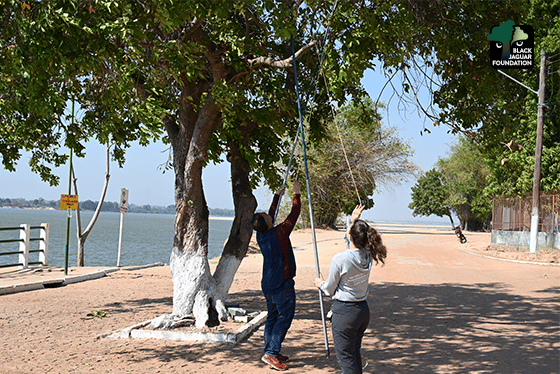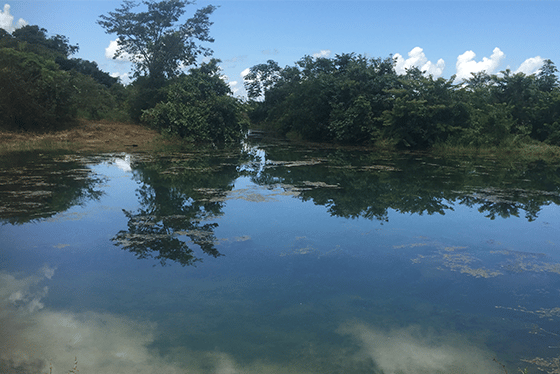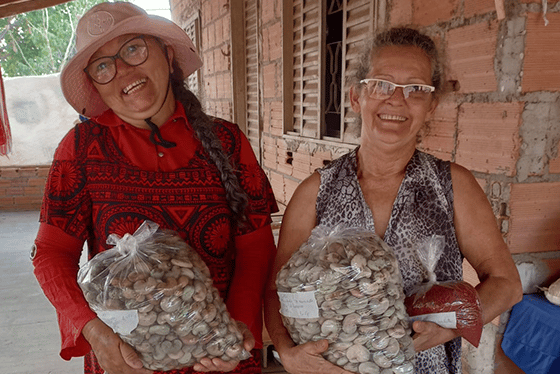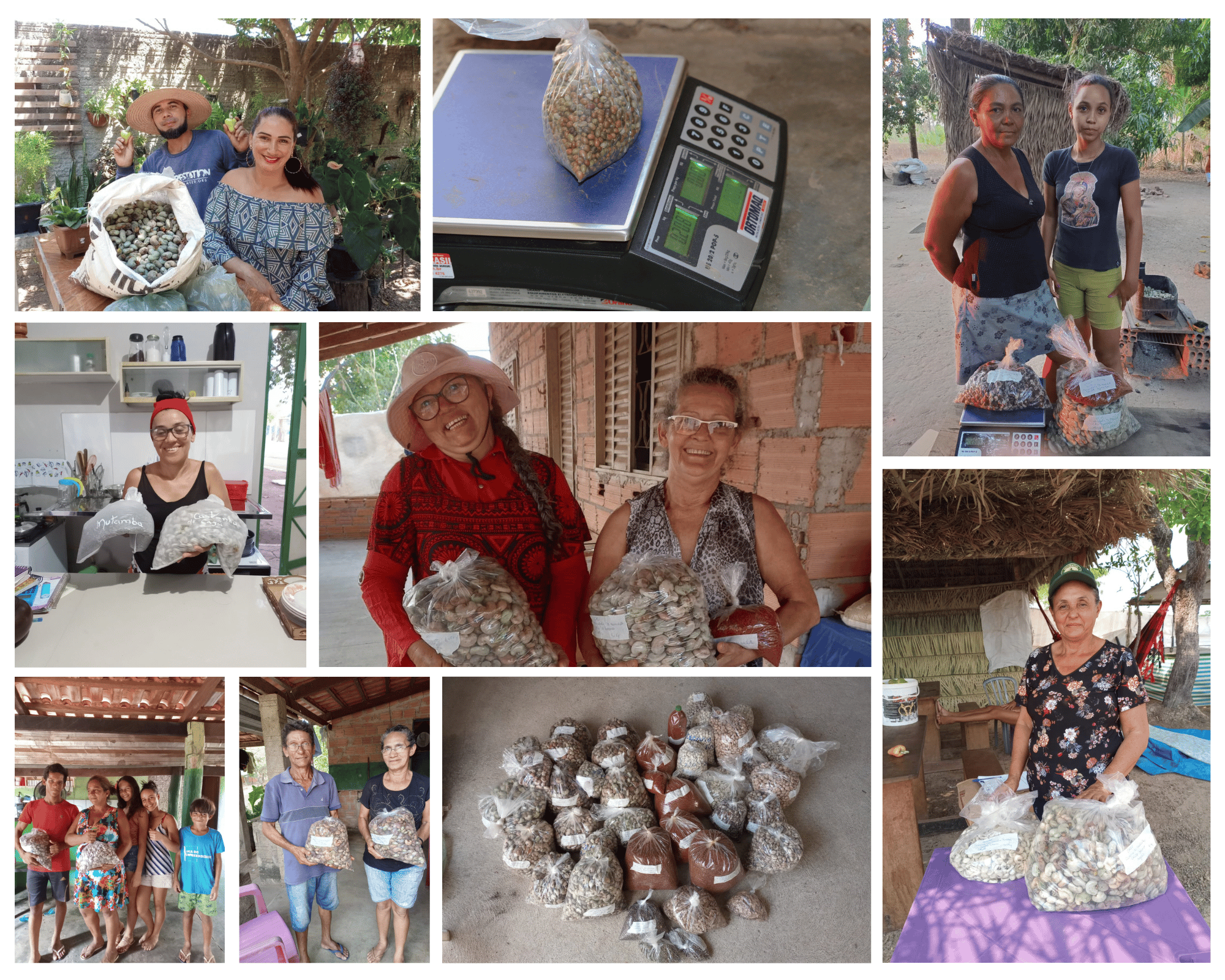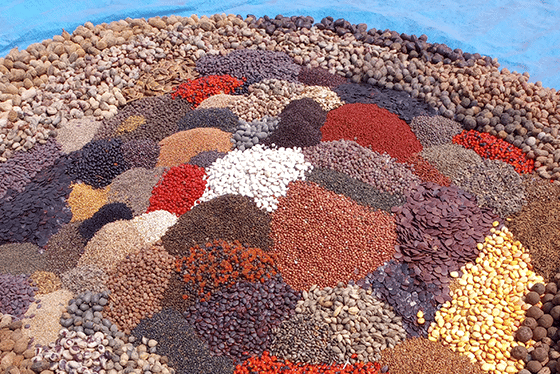
The Araguaia Seed Collection Collective is an initiative started by the Black Jaguar Foundation to provide seeds for our mission of ecological restoration that has already shown great benefits to local communities and the Araguaia Biodiversity corridor. The initiative is relatively young, and we would like to develop it so that it can reach its full potential in generating a positive impact for society and the planet. That’s why we take pride in learning from the Xingu Seed Network (Rede de Sementes do Xingu), which is the biggest seed network in Brazil, and has already been collecting seeds for 15 years! The Xingu Seed Network focusses on collecting high quality diverse native seeds while bringing together different communities and valuing their land and culture. Their collectors include indigenous groups, small-scale farmers, and those engaged in urban agriculture. Most of the collectors are indigenous women, and the network prides itself in how it brings together different groups.
With this in mind, our seed production analyst, Laís D’Ísep, participated in the 15 year celebration event for the Xingu Seed Network! The festivities brought together seed collectors, representatives of organizations, journalists and supporters from all over Brazil, eager to share experiences and knowledge to accomplish one common goal: restoring our planet’s socio-biodiversity.
The event was held at the Pavuru Pole and at the Moygu village, Xingu Indigenous Territory (TIX), Mato Grosso, on the banks of the Xingu River. The Ikpeng indigenous people live there and it is the base of opperations for the Yarang Women’s Movement – a group that is part of the Xingu Seeds Network along with 24 other communities.
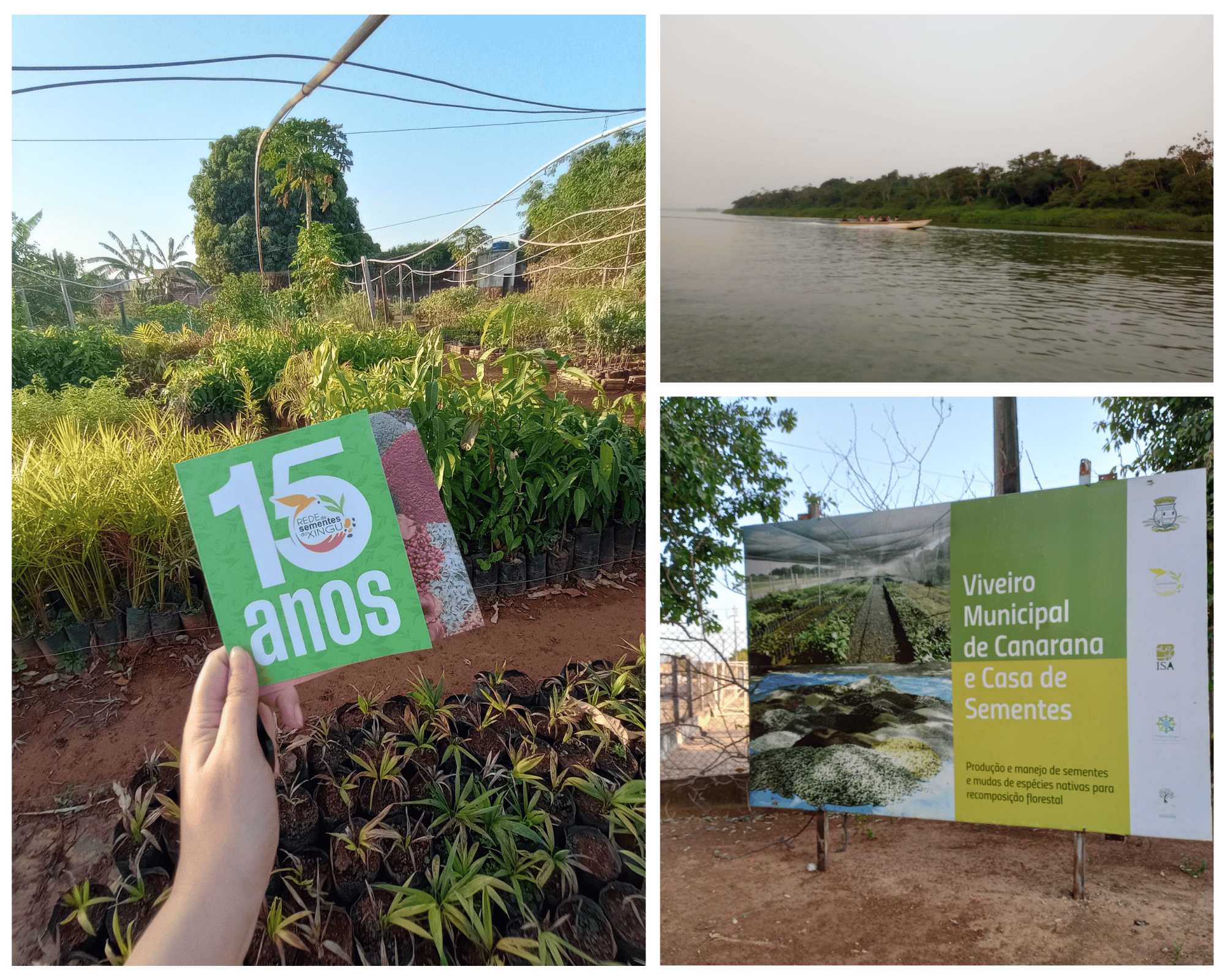
Some highlights from the 15 year celebration event
On the first day of the event, 210 participants listened to speeches by leaders of the seed collection groups organized by Rede de Sementes do Xingu and other organizations. They spoke about how the seed collective is inspiring different groups to work together. Indigenous cultural presentations were also performed, including a celebratory dance by the Ikpeng community that was present.
On the following day, participants were invited to collect amescla seeds from the forest’s floor. The activitity was carried out together with women belonging to the Yarang community, who are usually responsible for this job, and conduct it while singing.
Afterwards, some of Rede de Sementes do Xingu’s most successful initiatives were presented, including their work with youth groups and other initiatives generating a positive social impact. In the afternoon, everyone came together to carry out muvuca and each participant was allowed to take some seeds home.
At night, a forró contest was organized to close the celebration and, the next day, everyone returned to Canarana (MT).
The First Encontro do REDÁRIO
The Araguaia Seed Collection Collective has also recently participated in the first Encontro do Redario!
The Encontro do Redário is an initiative that aims to bring together different seed collectives in Brazil, as well as associations of collectors, academia and other organizations that offer technical, legal and commercial support to seed collectives.
The first edition of this event took place at Aldeia Multiétnica, in Chapada dos Veadeiros – Alto Paraíso de Goiás. Its main objective was to create a space where participants could exchange experiences and build what they believe Redário is and can become.

